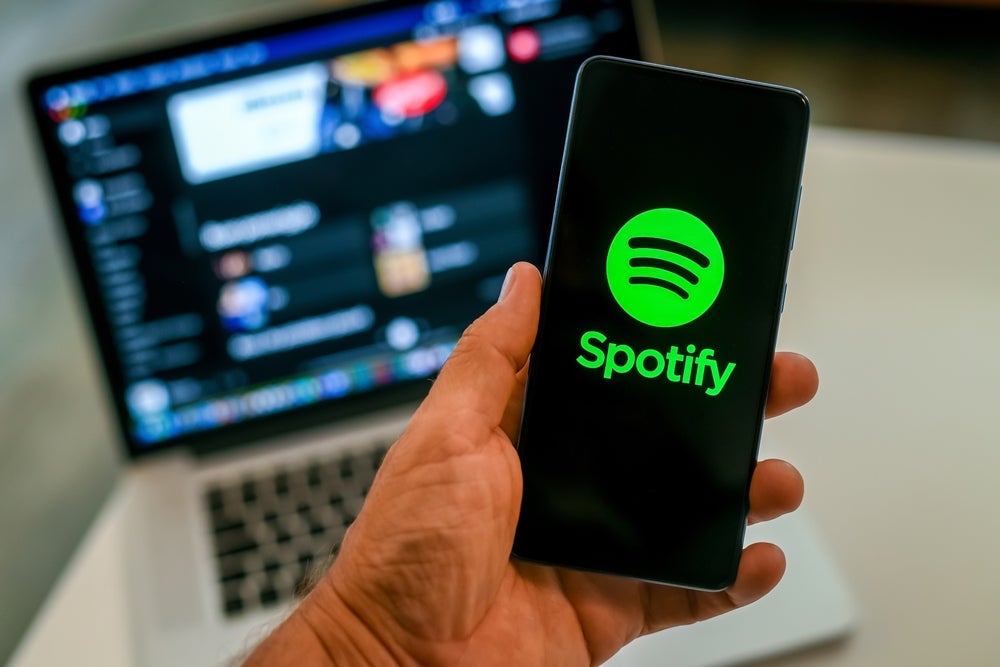
The boss of US music streaming giant Spotify has claimed the platform has no plans to ban AI generated content. The comments come at a time when copyright lawsuits involving the training of AI models with copyrighted content are on the rise and many businesses remain unsure about the legal implications of its use.
Spotify CEO Daniel Ek told the BBC that he believed there were many valid uses of AI in the music industry.
The AI content which directly impersonates an artist without their consent should not be allowed, Daniel Ek said.
At the beginning of 2023, Spotify removed a song made with AI-cloned voices of artists Drake and The Weekend from its platform. The song’s creator, Ghostwriter, attempted to have the song nominated for a Grammy but was not accepted. Neither artists were made aware that their voices had been used.
“You can imagine someone uploading a song, claiming to be Madonna, even if they’re not. We’ve seen pretty much everything in the history of Spotify at this point with people trying to game our system,” Ek told the BBC.
However, the streaming boss explained that music that is inspired by an artist without directly impersonating them is more complicated.
How well do you really know your competitors?
Access the most comprehensive Company Profiles on the market, powered by GlobalData. Save hours of research. Gain competitive edge.

Thank you!
Your download email will arrive shortly
Not ready to buy yet? Download a free sample
We are confident about the unique quality of our Company Profiles. However, we want you to make the most beneficial decision for your business, so we offer a free sample that you can download by submitting the below form
By GlobalDataEk described the challenges to AI content in the industry as “tricky” and that issues will be debated for “many, many years”.
Despite allowing AI generated music on Spotify, the platform holds a tough stance against allowing its content to be trained in a machine learning or AI models.
“We have a very large team that is working on exactly these types of issues,” Ek told the publication.
Tony Rigg, lecturer in music industry management at the University of Central Lancashire, told Verdict that while AI generated music will “inevitably unlock new avenues of possibility”, it remains a “doubled-edged sword”.
The rising of tensions from its “potential to undermine the value of human creativity” remains “juxtaposed with its potential to augment it,” Rigg added.
Technology companies are exploring a copyright fix
Media and stock image company, Getty Images, announced on Monday (25 Sept) that it will be releasing an AI generation tool to create new pieces of art from its catalogue of royalty free images.
The uncertainty around the fair use of the content and AI software means that many businesses are weary of using it for commerical use, Getty CEO Craig Peters said.
“Customers want to use generative AI but do not want to run into this sort of minefield of, ‘We don’t even know if we own this thing,’” Peters added.
This announcement follows competitor Shutterstock‘s AI generator tool, released in January. Both companies claim that businesses and brands are able to use the imagery “worry-free”, due to the AI models being limited with what images can power it.
These platforms are different from image generators like OpenAI’s Dall-E and Stability AI’s Stable Diffusion, as they do not use images scraped from the internet to power the generated image.
Peters said that the copyright free AI service from Getty shows that AI companies are not being truthful when claiming they can’t produce a system which respects intellectual property rights.
“It fundamentally undercuts one of the arguments of those that put these generative models out there without compensating,” he said.
Microsoft recently announced it will defend buyers of its AI products from any copyright lawsuits.
AI copyright lawsuits are rife
Spotify’s news comes as copyright issues surrounding generated content continue to crop up across many different industries.
An ongoing lawsuit between information services company Thomas Reuters and legal AI platform Ross Intelligence could become one of the world’s first trials regarding the unlawful use of data to train AI systems.
Thomas Reuters accused Ross Intelligence of copying content from its legal-research platform Westlaw to train an AI based platform, a federal judge said on Monday.
US Circuit Judge Stephanos Bibas told the jury that they should decide using fair use practises and other questions – like the overall copyright protection of what was used.
“Here, we run into a hotly debated question,” Bibas said, “Is it in the public benefit to allow AI to be trained with copyrighted material?” he said.
In January, a trio of artists launched a lawsuit against AI image generator makers Stability AI and Midjourney.
The three artists alleged that the companies had encroached on “millions of artists” by training its AI models with five billion images on the web “without the consent of the original artists”.
In August, a US court ruled that a work of art created by AI without any human input can not be copyrighted under US law.
US District Judge Beryl Howellruled that only works with human authors will be eligible for copyright.
Erik Wikander, co-founder of AI content marketing platform, Zupyak, told Verdict that AI generated content “is the new normal and businesses need to adapt to this technology.”
There is a legal grey zone surrounding whether the usage of content for AI training is legal, Wikander explained.
“As with these new disruptive innovations, the legal system will need to be adapted and businesses will need to adapt accordingly,” he added.







